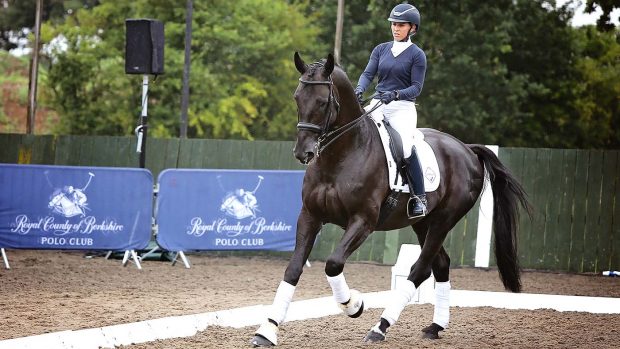Riders think they know more about equestrian topics than they actually do, according to the “alarming” results of new research.
Scientists who wanted to find out whether or not riders can accurately assess their own levels of equestrian knowledge found this was not the case.
The research project involved groups of equestrian and non-equestrian participants with different levels of education. Both groups were asked to complete a general knowledge questionnaire and then estimate how many questions they felt they had answered correctly.
The group of riders, whose equestrian experience was also recorded, was also asked to complete a set of equine-specific questions, and to estimate how well they thought they had performed in this.
It was found that both groups performed to similar levels in the general knowledge quiz, and both were reasonably accurate in estimating their scores.
But in the equestrian quiz, it was found riders “demonstrated an over-estimation of their equine knowledge regardless of qualification level”.
“This preliminary study found all equestrians had an inflated confidence in their equine-related knowledge indicating that equine-related individuals have only moderate insight into their abilities,” the study’s authors said.
The research was the first to provide evidence of the Dunning-Kruger effect, by which lower performers tend to be unaware of their lack of knowledge or ability, within equestrians.
“This preliminary study found all equestrians had an inflated confidence in their equine-related knowledge indicating that equine-related individuals have only moderate insight into their abilities,” the authors said.
The research involved 123 non-horsey and 128 horsey people, and the authors said it shows more work in this area is needed, as well as studies of whether people tend also to over-estimate their physical skills in riding or horse care.
“No doubt you have experienced a situation where someone’s performance is below average but they are confident their performance is excellent,” the authors said. “This is the Dunning-Kruger effect in action.
“This is the first study to demonstrate horse riders over-estimate their knowledge indicating an over-confidence. Horse riders think they know more than they actually know
Continues below…

Landmark study takes ‘first step’ in tackling rider weight
The research found rider weight has a ‘substantial temporary effect’ on horse movement and behaviour

Riders must ‘change their behaviour’ to make roads safer
Rider and broadcaster Lizzie Greenwood-Hughes spoke out at the British Horse Society’s the Real Horsepower Safety Conference

Subscribe to Horse & Hound magazine today – and enjoy unlimited website access all year round
“This over-confidence can have serious consequences on the welfare of horses, could affect the mental health of riders, and raises important safety issues to the rider and horse.”
The study was conducted by David Marlin, Hayley Randle, Lynn Pal and Jane Williams.
For more on the study and its implications, see next week’s H&H, out 1 November.




